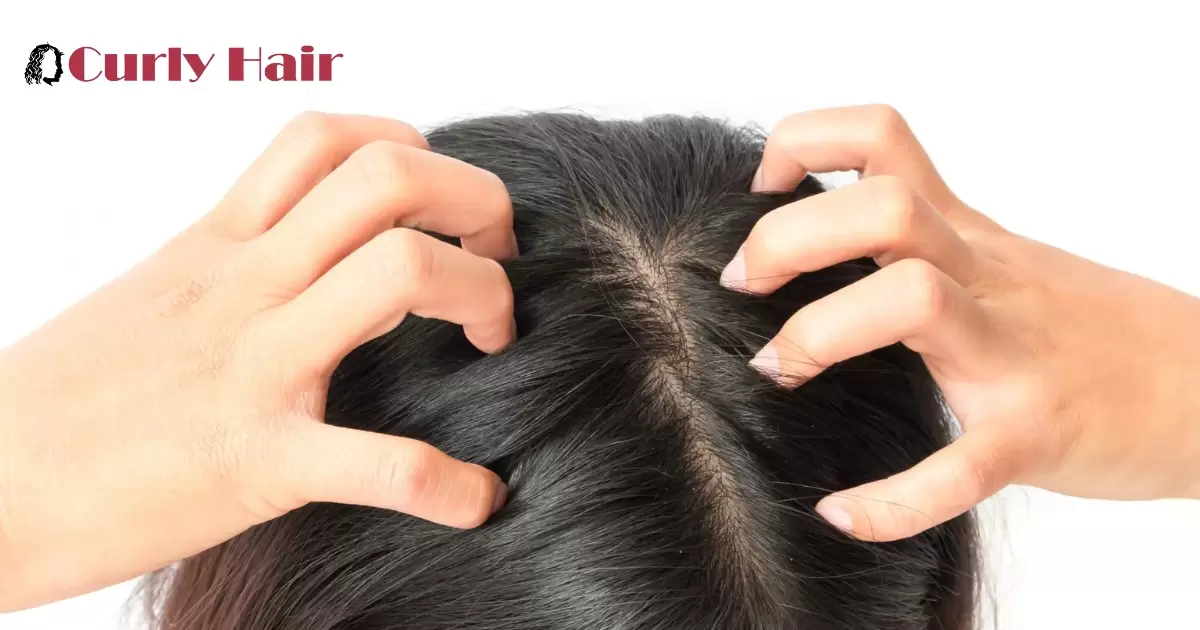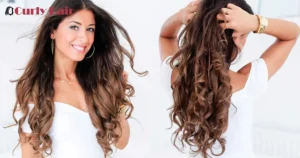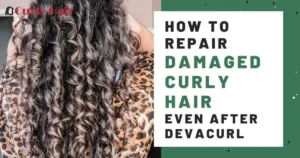Oily hair needs gentle care. Use a mild shampoo without sulfates daily to remove excess oil. Rinse thoroughly. Apply an apple cider vinegar rinse weekly to balance pH. Massage the scalp gently when washing. Let hair air dry naturally. Avoid harsh styling products that strip oils.
How To Care For Oily Hair And Scalp? Excess oil and shine bringing you down? Oily hair needs gentle care and balance to look its best. Learn simple, natural tips to control oil and have healthy, beautiful hair. With a gentle routine, you can say goodbye to flat, lifeless locks and hello to fresh, bouncy hair.
Controlling oil and shine starts with understanding your hair’s needs. Learn simple tips and tricks to balance your scalp, remove excess oil gently, and boost hair health. Get salon-worthy hair at home. Join me on this journey to oil control and luscious locks.
Key Takeaways
- Use a gentle, sulfate-free shampoo
- Wash hair regularly to control excess oil
- Avoid hot water, opt for lukewarm showers
- Use a lightweight conditioner on hair ends
- Incorporate a clarifying treatment weekly
- Choose oil-free hair products
What Is An Oily Scalp?
An oily scalp happens when your hair roots produce too much oil. It’s natural for your scalp to make some oil, but excess amounts lead to that greasy feeling. This extra oil can make your hair look unwashed even if you shower regularly.
Using the right shampoo is key. Look for “clarifying” or “oil-control” labels. Wash your hair with lukewarm water, not hot. Don’t overwash – 2 to 3 times a week is plenty. Condition just your hair ends and use a lightweight conditioner. Try dry shampoo between washes to absorb oil. Brush your hair regularly to spread natural oils.
Causes Of Oily Scalp
| Cause | Description |
| Hormonal changes | Fluctuations in hormone levels, such as during puberty, pregnancy, or menopause, can increase oil production on the scalp. |
| Genetics | Oily scalp can be inherited from family members who also have overactive sebaceous glands. |
| Overwashing | Excessive washing or using harsh shampoos can strip the scalp of its natural oils, leading to increased oil production. |
| Diet | Consuming a diet high in oily or greasy foods may contribute to excessive oiliness on the scalp. |
| Stress | Stress can stimulate the production of hormones that increase oil production in the scalp. |
| Weather and climate | Hot and humid weather conditions can stimulate the sebaceous glands, leading to oily scalp. |
A greasy scalp often results from excessive oil production. Genetics plays a role, as some people naturally produce more sebum. Hormonal changes, particularly during puberty, pregnancy, or menopause, can trigger increased oiliness.
Overwashing or using harsh shampoos strips the scalp of its natural oils, prompting it to overcompensate by producing more. Environmental factors, like humid weather, can exacerbate the issue.
Effective care involves using a gentle, clarifying shampoo, regulating washing frequency, and considering factors like boar bristle brush curly hair, genetics, and hormonal changes.
Seborrheic Dermatitis
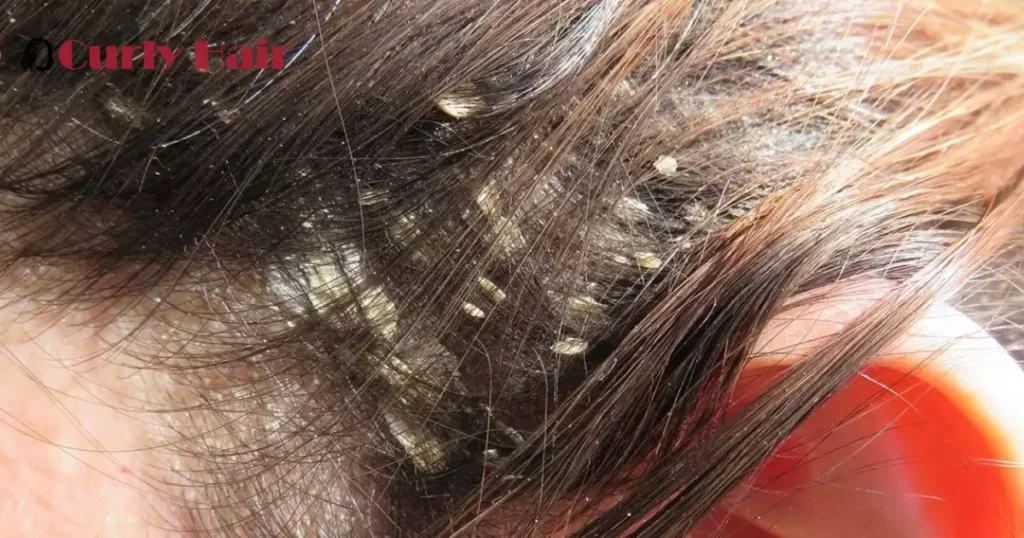
Seborrheic Dermatitis is a skin condition that can make your scalp oily. It leads to red, itchy, and flaky skin. To manage it, use a gentle, anti-dandruff shampoo. Wash your hair regularly, but not too much – 2 to 3 times a week is good. Avoid hot water and choose a sulfate-free shampoo.
Skin Conditions
Dealing with skin conditions can be a real challenge. If you’ve got oily skin, using a gentle, oil-free cleanser can help. Wash your face twice a day, and don’t forget to moisturize with a light, non-comedogenic product. For those with acne, consider benzoyl peroxide or salicylic acid treatments, but don’t overdo it – too much can make it worse.
Forehead Acne
Oil-free cleanser twice daily. Say no to harsh scrubbing and opt for non-comedogenic products. Maintain a balanced diet, stay hydrated, and resist the urge to touch your face. Regular hair washing prevents oil transfer.
Genetics
They determine our eye color, height, and more. If your parents had curly hair, you likely do too. It’s a family thing. Genetics is the reason you might resemble your grandma more than your friends. It’s the code that passes down traits, linking generations in a unique chain.
What Causes Oily Scalp Alongside Dry Hair?
Genetics plays a big role in why some folks battle both an oily scalp and dry hair. It’s like a family trait handed down through the genes. The overactive oil glands in the scalp, often inherited, pump out excess oil, making the scalp greasy. Meanwhile, the hair might lack moisture, leading to dryness.
So, if you find yourself juggling an oily scalp and dry hair, blame it on your family tree. The genetic hand you were dealt could be the reason behind this hair struggle. Understanding this link can help you tailor your hair care routine to better manage the dynamic duo of oily scalp and dry hair.
Oily And Itchy Scalp
Genetics play a role in the battle against an oily and itchy scalp. If your parents had it, you might too. Blame the genes for overactive oil glands.
An itchy scalp is often a family affair. Those genes make your scalp produce more oil than needed, leading to itchiness. Quick showers with a mild shampoo can help, and the right genes won’t stand in your way.
Oily Scalp Alongside Hair Loss
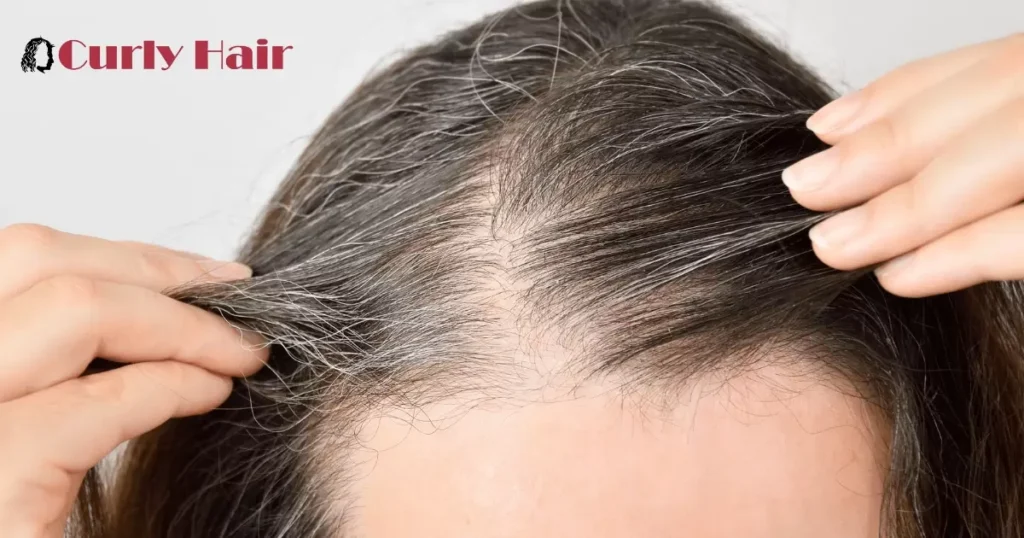
An oily scalp might bring along an unwelcome guest – hair loss. When your scalp produces excess oil, hair follicles get clogged, making it harder for new hair to grow. Too much oil can weaken your hair roots, leading to increased hair shedding.
Keeping that scalp clean becomes crucial; use a gentle shampoo and don’t overwash. If the oiliness persists, it’s not just a bad hair day; it might be time to consult with a hair care professional to find the right balance.
Tips To Get Rid Of Oily Scalp And Hair
Dealing with an oily scalp and hair can be frustrating, but there are several tips and habits you can adopt to help manage and reduce excess oil production. Here are some tips to get rid of oily scalp and hair.
Use a Gentle Shampoo: Choose a mild, sulfate-free shampoo that is specifically formulated for oily hair. Avoid harsh shampoos, as they can strip your scalp of natural oils, leading to increased oil production.
Frequent Washing: Wash your hair regularly to remove excess oil and prevent the buildup of sebum. However, be mindful not to overwash, as this can stimulate your scalp to produce even more oil.
Cold Water Rinse: Finish your hair-washing routine with a cold water rinse. Cold water helps to constrict the hair cuticles, reducing oil production and making your hair appear shinier.
Avoid Hot Water: Hot water can strip your scalp of its natural oils, prompting it to produce more oil to compensate. Use lukewarm water when washing your hair.
Balanced Diet: A healthy diet can impact the health of your scalp and hair. Ensure you’re getting enough vitamins and minerals, especially vitamin A, vitamin E, and omega-3 fatty acids, which can help regulate oil production.
Limit Heat Styling: Reduce the use of heat-styling tools, such as flat irons and blow dryers, as they can stimulate oil production. If you must use them, use a heat protectant spray and keep the heat setting moderate.
Choose the Right Hair Products: Use lightweight, oil-free hair products, including conditioners and styling products. Look for products labeled “oil-free,” “volumizing,” or “for oily hair.”
Apple Cider Vinegar Rinse: Mix one part apple cider vinegar with two parts water and use it as a final rinse after shampooing. This can help balance the pH of your scalp and control oil.
Is Greasy Hair Normal?
Having greasy hair is pretty normal. Your scalp has oil glands doing their job, keeping things moisturized. But sometimes, they go into overdrive, and your hair turns into an oily affair. Blame hormones, genetics, or maybe just your lifestyle.
Daily habits, like washing too often or not enough, can influence the greasiness. If it bothers you, finding the right balance is key. Choose the right shampoo, wash at regular intervals, and don’t let those oil glands take center stage. After all, a bit of grease is normal, but finding the sweet spot makes it more manageable.
How To Manage Oily Hair?

Managing oily hair is a game of balance. Choose a gentle, oil-control shampoo – it’s your first weapon. Wash every 2-3 days, not more, to avoid overstimulating oil glands. Skip conditioner on your scalp, apply it only at your hair ends.
Dry shampoo between washes is your ally. Beware of heavy styling products; they add to the oil party. A balanced diet helps – think B vitamins and omega-3s. Drink water – it’s your hair’s friend. And, don’t stress; it fuels the oil production battle.
Frequently Asked Question
How should scalp and hair be treated if they are oily?
To tackle oily hair and scalp, use a gentle, sulfate-free shampoo designed for oily hair. Wash 2-3 times weekly with lukewarm water, and avoid overusing styling products. Opt for a lightweight conditioner, and consider a dry shampoo between washes.
How do you get rid of excess oil in your hair?
To tackle excess oil in your hair, opt for a gentle, sulfate-free shampoo designed for oily hair. Wash 2-3 times a week, use lukewarm water, and avoid applying conditioner to the scalp.
Does an oily scalp need oiling?
No need to add more oil to an oily scalp. Keep it simple. wash regularly, choose the right shampoo, and let your scalp find its natural balance.
Conclusion
In conclusion, mastering How To Care For Oily Hair And Scalp? involves adopting a holistic approach. Begin by choosing the right shampoo and conditioner to maintain a balanced oil level. Incorporate a gentle cleansing routine, ensuring not to overwash, as it may trigger excess oil production.
Additionally, consider lifestyle changes, such as a balanced diet and stress management, as they play a crucial role in regulating oil secretion on the scalp. Furthermore, explore natural remedies like tea tree oil or aloe vera, known for their effective oil-controlling properties.
Embracing these simple yet effective strategies will empower you to manage oily hair and scalp with confidence, achieving a clean and refreshed look. Remember, consistency is key, and with patience, you can attain lasting results in your journey to caring for oily hair and scalp.
